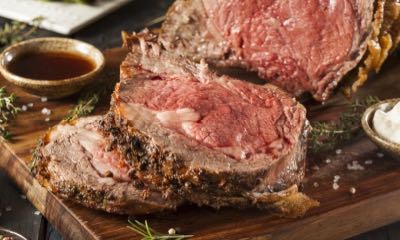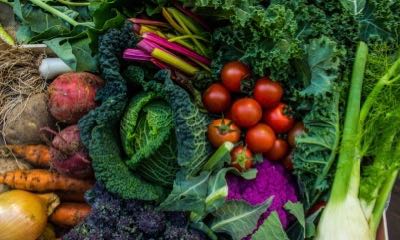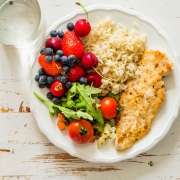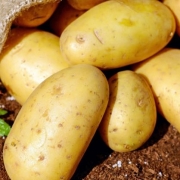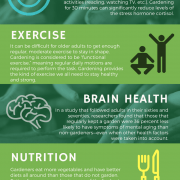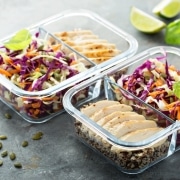Easy Swaps for 6 Hard to Digest Foods
A meal can make your day. Or the wrong one can sink your plans—and your digestive system—like a stone. That’s because all foods don’t digest the same way. Digestibility can even change from person to person. This depends on factors like digestive juices and enzyme activity, microbiome makeup, and anatomical differences. But there are some hard to digest foods that are largely troublesome.
These problems are broadly categorized as digestive issues. And it might be best to leave it at that. To describe them in detail would probably end your reading experience right here. You’re likely familiar with the variety of feelings that result from eating the worst digestion foods out there. It isn’t pretty or comfortable.
And that’s good enough reason to figure out how to swap out these six potentially day-derailing foods.
Fried Foods Burn Your Day to a Crisp
A diet full of fried foods provides a variety of issues. They are a main culprit in the modern, Western dietary descent into the unhealthy. Eating fried foods has many links to unhealthy weight gain and all the associated issues.
While your waistline might be the first thing that jumps to mind, don’t forget the impact fried foods have on your digestive system. Frying any food adds fat. No surprise, since you’re literally immersing food into liquid lipids.
This abundance of fat can trigger a variety of gastric issues for some. It also has been found to have adverse effects on the healthy diversity of the gut microbiome. And that community of microbes play a big role in digestion. That makes fried foods a double-whammy of digestive difficulties.
Eat This Instead: Baking or roasting foods instead of frying will cut down on added fat without sacrificing some of the crunch and crisp of fried foods.
Sugar Substitutes Aren’t Sweet on Your Digestive System
You or someone you know is cutting back on sugar consumption. This is a good goal. But turning to highly processed sugar substitutes may create digestive issues.
Some alternative sweeteners—especially sugar alcohols—have been tied to gastrointestinal unpleasantness. That’s because these substitutes aren’t fully digestible. And consuming too many of various sugar alcohols—frequently found in chewing gum and other sugar-free foods—can sour your day.
Eat This Instead: Cutting out sugar is tough, but there are natural, plant-based substitutes that aren’t linked to substantial digestive issues.
Fatty Meats Make Hard to Digest Foods
Just because the fat is present before cooking doesn’t make fatty meats easier to digest than fried foods. Once again, you need to trim the excessive, unhealthy fat.
The same concerns about your microbiome exist with fatty meats. But your anatomical digestive processes can be upset by eating too much fat, as well. That’s because fat impacts the speed of stomach emptying. Altering the timing of movement and the flow of food through your digestive tract could wreak havoc.
Whether it slows down emptying or speeds up the process, you will feel it.
Eat This Instead: Protein is a key component of a healthy diet. You absolutely need it. But that well-marbled steak isn’t essential. So, replace fatty meats with leaner—or plant-based—protein sources.
Processed Foods Interrupt Your Digestive Processes
Your body has developed to eat what’s around you. For a long time, that meant whole foods from plant and animal sources. Now food scientists and manufacturers can develop foods that take parts and pieces from many sources to make a new whole.
This processing often strips fiber, which is great for digestive health. It also adds fat, sugar, and salt—all of which aren’t good for digestion in excess. More digestive issues could come from the prevalence of artificial ingredients and preservatives that may be hard for your body to handle.
Eat This Instead: Stick, as much as you can, to whole or minimally processed foods—fruits, vegetables, lean proteins, legumes, nuts, and whole grains.
Dairy can be Disastrous for Digestion
If you’re lactose intolerant, the dairy aisle has many hard to digest foods. That’s obvious. Many lack the enzymes necessary to process lactose (or milk sugar). There are remedies, but dairy digestion could remain hard no matter what, especially soft cheeses and milk.
Eat This Instead: Fermented dairy products like yogurt. Also lactose-free milk and harder cheeses are easier because lactose isn’t present or is limited. That’s because it has already been taken care of. So, turn to these easier options to get your dairy fix.
Carbonated Drinks Don’t Do You Any Favors
Many carbonated drinks have alternative sweeteners or are loaded with sugar. Both can be bothersome. But the bubbles are the real problem.
Some people deal with carbonation better than others. But filling your stomach with gas can easily lead to bloating for anyone. And when those bubble pop, the air has to escape somewhere.
Drink This Instead: Plain water is always your best bet for hydration. If you need something a bit more interesting, try adding fruit or switching to green tea.
Aren’t Fiber-Rich Grains, Fruits, and Vegetables Hard to Digest Foods?
You’ll see fruits, vegetables, legumes, and whole grains on lists of foods that may menace your digestive system. You can blame fiber.
It’s true that fiber—both soluble and insoluble varieties—aren’t fully digested. Given what you know, that seems bad. And packing yourself with a bunch of fiber-rich foods does generate a gastrointestinal reaction.
But the reason fiber-rich plant-based foods aren’t on the list above is because these foods have so many positives. And there are easy ways around the digestive dysfunction they could cause.
First of all, fiber also aids in digestion, adding bulk and helping the movement of waste products. It also acts as food for your microbiome (prebiotics). And finally, fiber has ties to multiple health benefits and weight management success.
Vegetables and fruits are packed with vitamins, minerals, and other phytonutrients. So, you don’t want to skip them because they were on a list of hard to digest foods. You just have to be smart about how they are prepared and how much you eat.
Gradually increase your consumption of raw vegetables—especially cruciferous types, like cabbage and broccoli. That way your body and microbiome have time to adjust to the incremental increase in fiber and other plant material. Cooking vegetables will also help with their digestibility, and, in some cases, improve the bioavailability of certain nutrients.
When it comes to fruits, moderation still matters. But selection is important, as well. Berries and bananas—and other low-fructose fruits—are easier on your digestive system than choices like pears or apples. Also, don’t overdo it with acidic fruits.
Obviously, avoid grains if you’re allergic to them. And legumes (beans, lentils, and peas) are tough because they’re full of fiber and you may not have the enzymes needed to break them down. Soaking beans before cooking is a step towards mitigate beans’ impact on your guts.
Do a Favor for Your Digestive System
There are so many factors to consider when planning your meals. You can focus on macronutrients, micronutrients, calories, and on and on. Just don’t forget about what happens after the food leaves your fork.
Cut the food that you eat into small pieces and chew each bite completely before swallowing, as this can aid in digestibility. Swap out or limit the hard to digest foods you eat for ingredients easier on your gastrointestinal tract. That way eating will be energizing, filling, and satisfying instead of a form of culinary sabotage for your day.
References
https://www.webmd.com/digestive-disorders/ss/slideshow-foods-to-avoid
https://www.everydayhealth.com/digestive-health/diet/foods-to-avoid-during-digestive-problems/
https://www.nhs.uk/live-well/eat-well/good-foods-to-help-your-digestion/
https://www.hopkinsmedicine.org/health/wellness-and-prevention/5-foods-to-improve-your-digestion
https://www.webmd.com/heartburn-gerd/features/heartburn-foods-to-avoid#1
https://www.healthline.com/nutrition/13-foods-that-cause-bloating
https://www.cookinglight.com/eating-smart/nutrition-101/worst-foods-for-digestion






